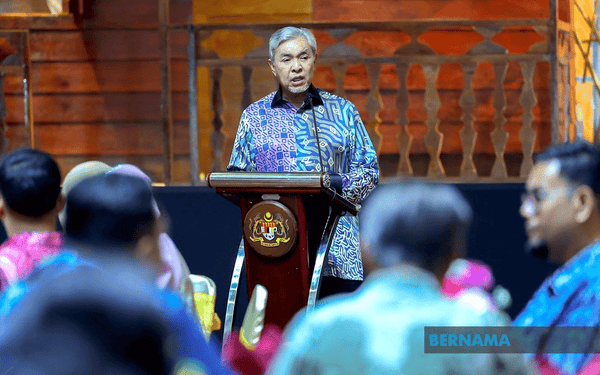KUALA LUMPUR, June 5 — Malaysia is committed to strengthening its strategic cooperation with the United Nations Office for Disaster Risk Reduction (UNDRR) to address increasingly complex disaster challenges, especially those related to climate change and community resilience, said Deputy Prime Minister Datuk Seri Ahmad Zahid Hamidi.
Zahid, who led the Malaysian delegation to the eighth session of the Global Platform for Disaster Risk Reduction in Geneva yesterday and today, said the matter was discussed during his meeting with UN assistant secretary-general Kamal Kishore, who is also head of UNDRR, at the Geneva International Conference Centre today.
“This meeting is highly significant for Malaysia, especially in our efforts to strengthen strategic collaboration with UNDRR in facing increasingly complex disaster challenges, closely linked to climate change and community resilience,” he said in a statement on his official Facebook page.
He said the discussions also touched on the potential development of a National Disaster Risk Reduction Act, smarter early warning systems, more accurate flood risk mapping, and strategic investments in education and community awareness.
Zahid shared Malaysia’s experience in dealing with the severe floods at the end of last year, which affected over 150,000 people in nine states, stressing the importance of long-term planning and science- and data-based preventive measures.
Meanwhile, Kishore praised Malaysia’s swift action through the SMART team in its recent humanitarian and search-and-rescue mission in Myanmar, which he said reflected Malaysia’s leadership in the Asean context.
Zahid said Malaysia had expressed its readiness to take on a greater role within the framework of regional cooperation under the Asean Agreement on Disaster Management and Emergency Response during its Asean chairmanship, particularly in enhancing regional disaster preparedness and resilience.
“God willing, through smart partnerships with UNDRR and global partners, we will continue striving to ensure this country’s policies protect lives, safeguard the people’s well-being, and build a more resilient future,” he said.
— Bernama




